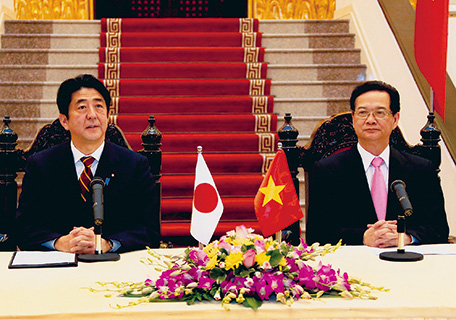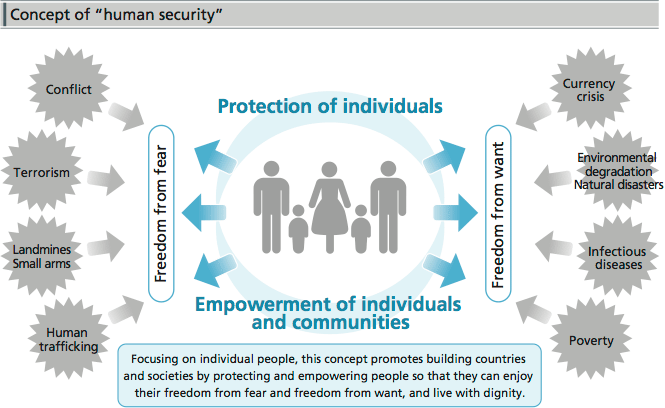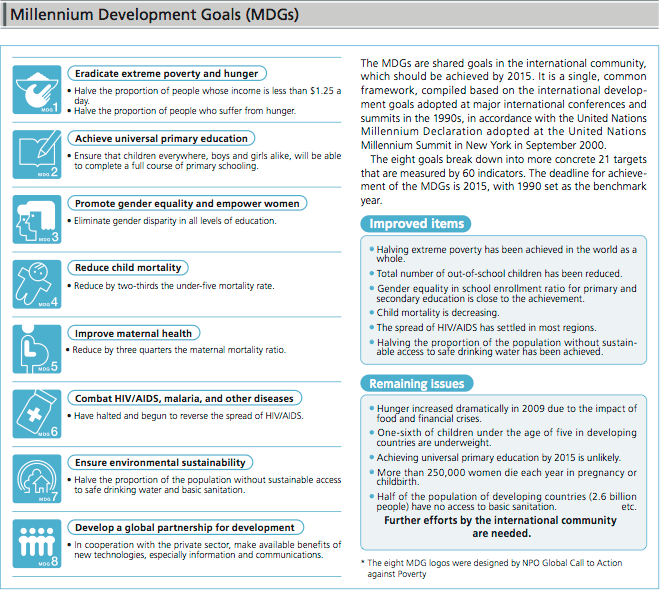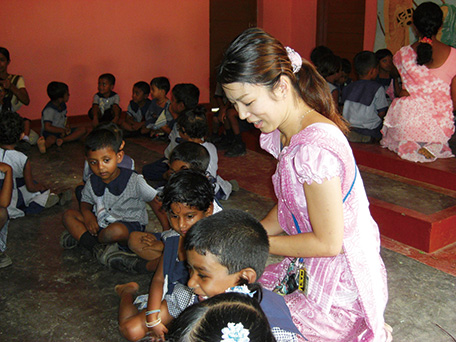Japan's Official Development Assistance White Paper 2012
Section 2 ODA for Building up Trust in Japan – Growth for poverty reduction
In September 2000, the international community adopted the Millennium Declaration and shared a vision for the world in the 21st century. Based on the Millennium Declaration and some other international development goals adopted at major international conferences in the 1990s the Millennium Development Goals (MDGs) were compiled. MDGs focus on human and social development and include eradicating extreme poverty and hunger, achieving universal primary education, reducing child mortality, improving maternal health, and ensuring environmental sustainability. Economic growth itself is not an objective of the MDGs.
However, looking back on the past dozen years or so, Asian countries especially China, India and some Southeast Asian countries, that have achieved sustained economic growth, have witnessed good progress in the efforts of attaining the MDGs. Japan has been providing assistance to these countries in areas such as health and education, where the poor can benefit directly. In addition to these areas, Japan has also been providing assistance in manners that directly influence their economic growth, such as supporting infrastructure development, stimulating trade and investment, improving legal systems, developing industry, creating employment opportunities, transferring technology, and promoting human resource development. Economic growth creates the wealth needed for development, and is a major driving force in developing countries. By including the poor in the growth process and sharing the dividends of growth, poverty can be further reduced. Also, inclusive (Note 1) growth which benefits all people will be realized.

Japanese Prime Minister Shinzo Abe and Vietnamese Prime Minister Nguyen Tan Dung hold a joint press conference in Hanoi. Both leaders agreed to cooperate in the areas of trade, investment, and infrastructure development.
Japan also has experience in post-war reconstruction, during which it achieved economic growth by improving infrastructure with finance provided by international organizations, etc. Later, Japan, utilizing its experience, became a donor country and has been providing aid mainly in East Asia. Of course, since the situation in each developing country differs, uniformly applying the same prescription as East Asia to other countries or regions is not always appropriate. Through efforts employing diverse methods that correspond to the conditions of each country or region, it is crucial to achieve economic growth for poverty reduction.
However, simply pursuing national economic growth and looking at each countries' national average on the economic indicators obscure the disparities that lie behind the growth. The disparities include the gaps between the rich and the poor, urban and rural areas, men and women, and ethnic minorities, etc. There may be a problem that the assistance cannot be delivered to the vulnerable people who are truly in need. In order to avoid this situation, it is necessary to ensure the concept of "equity" by improving conditions for all people, while particularly raising the standards for the most vulnerable. This concept is essential for realizing human security in communities, and these ideas of equity and human security are closely interconnected with each other.
Human security is a central concept for Japan in making efforts towards the achievement of the MDGs. Focusing on individual people who are exposed to various threats such as extreme poverty and infectious diseases, human security promotes building societies where people can attain freedom from fear and want, and live with dignity.
Allowing all people, including the poor, to be mentally and physically healthy, to receive appropriate education, to develop their potential under equal opportunity, and to be employed and participate in economic activity will lead to the growth of communities and the nation.
Inclusive growth that involves individual people in this way is necessary, as the dividends of growth can be shared and the benefits of development spread over a broad range of people. Based on human security, Japan provides multi-layered assistance that contributes to poverty reduction and inclusive growth. These efforts are meaningful in building up other countries’ trust in Japan.
However, even after the deadline for achieving MDGs comes in 2015, there will still be various issues. Now we face the question of what should be done about development goals beyond 2015 (post-2015 development agenda). The aim should be poverty eradication through high-quality economic growth, and the post-2015 development agenda needs to be a framework for forging partnership among various stakeholders who support each other, based on the concepts of equity and human security. Based on the experience of providing assistance and the results of development so far, Japan will further accelerate its efforts towards achieving the MDGs, as well as continue to proactively contribute to the discussions on the post-2015 development agenda.
Note 1: "Inclusive" refers to providing opportunities for every individual to participate in a society or an organization on an equal footing with others, while eliminating exclusion and discrimination that occurs due to different social or cultural backgrounds, disabilities and other individual characteristics. In particular, it refers to making participation easier for socially vulnerable people and groups that have been alienated from society.



JOCV member (early childhood education) working at a pre-school in Sri Lanka. (Photo: Tomoko Ogura)
